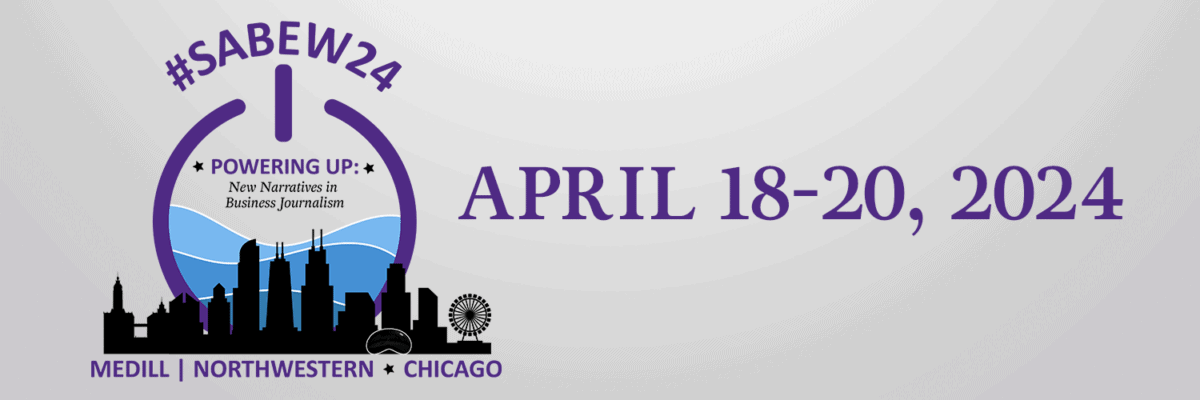By Ang Gao
Medill News Service
New and arcane technologies such as blockchain and cryptocurrency pose challenges and opportunities for major news organizations that are scrambling to meet reader demand for more coverage.
Among the biggest challenges are how to help readers understand the burgeoning technology and guide coverage of a world that few people, including themselves, fully understand, according to top editors interviewed at the Society for Advancing Business Editing and Writing’s spring conference in Washington, D.C.
“It’s a challenge for us every day to decide how much do we report on this, because it is a very exciting opportunity, and there are a lot of people interested in it,” said Glenn Hall, chief editor of Dow Jones Newswires. “But if you cover it too much, you can be part of the hype.”
Blockchain, which has been making headlines since last year, is a decentralized and distributed ledger that can record transactions in a permanent way. Its best-known application is cryptocurrency, including the volatile digital currency Bitcoin.
Reader interest in the technologies is growing exponentially. Caleb Silver, editor-in-chief at investing educational website Investopedia, said page views for blockchain and cryptocurrency content now make up around 10 percent of total page views on Investopedia.com, up from 0.5 percent in June, 2017.
Because investor interest in blockchain and cryptocurrency is growing rapidly, news organizations are moving quickly to establish themselves as reliable sources for such content.
The New York Times has four reporters covering blockchain and cryptocurrency, said Dean Murphy, the associate editor at the Times. All four are based in San Francisco to be closer to the hub of the technologies and include a former Wired magazine reporter who spent years covering artificial intelligence and machine learning.
“One of the hardest parts of that world is trying to figure out when something is important or not,” Murphy said.
Sourcing is critically important and notoriously difficult, both in the larger tech world and in the smaller niche of blockchain and cryptocurrency. Reporters mainly talk to analysts, venture capitalists and academics, but they work hard to find people who are more deeply involved with blockchain, Murphy said.
“To get people to talk critically about that industry is very different and a lot of them [employees] have non-disclosure agreements,” Murphy said. “You can’t cover this area without really strong reporters who have very good sources.”
Another challenge is with sources who try to use the media as a method of marketing, Murphy said. Some security analysts promote companies to the Times, hoping to be quoted and then get hired by those companies. Because blockchain is such a new technology, there is a greater risk of reporters being manipulated in this way.
Reporters must be well-versed in both finance and technology, because blockchain is an important intersection of these two, said Rich Barbieri, executive editor of CNNMoney.
“Blockchain is constantly changing,” Barbieri said. “You have to make smart decisions about what stories are not worth covering.”
Dow Jones’s Hall said reporters need to understand not only blockchain and its potential applications, but also the regulatory environment in which the technology is operating.
“There are a lot of risks to the future of this technology,” Hall said. “And any kind of change in the regulatory environment could instantly decrease or increase the value of a player in the market.”
There’s also not enough reporting that helps people to fundamentally understand how blockchain works, and what risks there may be in the technology, he said.
“Right now there is a lot of enthusiasm, but there’s not a lot of knowledge around for the average person about what this technology is capable of,” Hall said.
Investopedia uses subject matter experts to explain blockchain to its readers, Silver said. One of the editors has been writing about blockchain for five years, he added.
Separating the euphoria from reality is central to the coverage strategy at S&P Global Market Intelligence, said Gary Regenstreif, executive editor. He requires reporters to get quotes from both those who are enthusiastic and those who are cynical about blockchain and cryptocurrency.
The fact that a digital currency is popular now “doesn’t mean that it’s sustainable or it’s a viable security instrument in the very long term,” Regenstreif said.
While cryptocurrency is getting the most attention right now, it is just one expression of blockchain, Hall said. The blockchain technology is already being used in banking and could transform real estate, financial and other industries, he said.
Others agree that blockchain has not yet reached full potential.
“We see it being big for a long time because the notion of a decentralized system for everything from payments to tracking assets to supply chain management can all be improved through the use of blockchain,” he said.






